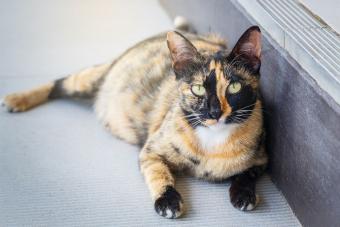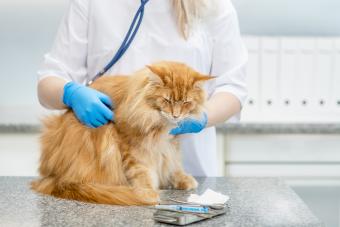
Hairballs are a frustrating occurrence for many cat owners. If you keep finding these pesky fur clumps around, you're probably looking for ways to help keep your cat from producing them. Fortunately, there are a few easy methods you can use to prevent cat hairballs.
1. Brush Regularly
Cats experience hairballs after ingesting fur while licking themselves. Therefore, one of the best ways to prevent them is through regular grooming. Try to brush your cat every day if you can, or as frequently as they'll let you. This is particularly important in long-haired cats. Brushing will help remove any loose fur that would otherwise be licked up and swallowed, then turn into a hairball.

As added benefits, brushing will remove any dirt or dandruff in the fur, prevent mats from forming, and stimulate healthy circulation in the skin. Be sure to use a gentle brush that won't scratch and traumatize the skin. This can also be a great bonding activity if your cat likes it. However, if you have cat allergies, you may need to take special precautions, such as wearing eye protection or a mask.
On the other hand, if your cat runs from you at just the sight of the brush, it may be time to turn to a professional. Bring your cat to a groomer for a thorough brushing or trim every four to six weeks.
2. Address Behavior
Even if you're brushing regularly, your cat may still ingest fur due to compulsive grooming. Boredom or stress can manifest as neurotic behaviors like over-grooming. Cats can choose to lick, chew, or pluck fur anywhere on the body, but the most common areas are the inner thighs, legs, and belly. If your cat's hair appears thin or sparse in these locations, they may be grooming excessively.
Provide your cat with regular playtime to keep them engaged and stimulated. Interactive toys like lasers and wands can be great for this. If stress could be the culprit, you can consult with a behaviorist or veterinarian to determine how to reduce your cat's anxiety. Pheromone diffusers can be helpful in combating changes in the household and similar scenarios.
3. Consider Specialized Nutrition
Special diets are available to help with hairball prevention. These products contain natural sources of fiber and fatty acids that help fur pass through a cat's digestive tract. They're also rich in essential vitamins and minerals that will promote skin and fur health. With a healthy coat, your cat may shed less and therefore develop fewer hairballs.

It's possible that a different type of diet switch could help with prevention, too. If your cat eats a dry kibble diet, you may want to consider switching them to canned food. The high moisture content of fresh, wet, and canned diets can also help move hair through the intestines.
4. Keep Them Hydrated
Keeping your cat hydrated is important to curb hairballs. When a cat doesn't take in enough water, they can experience decreased intestinal motility. This can lead to constipation, among other problems. But with proper hydration, any ingested fur can move easily through the intestines.
Along with switching your cat to a moisture-rich wet food, you can implement a few tricks, such as using a fountain to encourage them to take in more water. However, if your cat appears dehydrated or is drinking an increased volume of water, this could be a sign of larger systemic problems.
5. Try Preventive Laxatives
Products designed to lubricate the stomach contents can keep any ingested hairs from clumping together. These typically come in a gel form that has an appealing flavor (usually chicken or fish) to make administration easy. Just dab a bit on your finger and allow your cat to lick it up or gently put it in their cheek for them to swallow.
Some owners choose to use a bit of oil, such as mineral oil, petroleum jelly, or coconut oil, as a weekly supplement to prevent hairballs from forming. If you choose to go this route, check with your vet first, then be careful not to give too much, as this can cause stomach upset or weight gain.
6. Keep Parasites at Bay
Fleas, ticks, or mites could prompt your cat to chew at their body and ingest large amounts of fur. Veterinarians recommend keeping pets on year-round parasite preventative to keep harmful parasites at bay. Although indoor-only cats are a lower risk for getting these bugs, they can still become infected with them.
Keep Your Cat from Getting Hairballs
With six simple tricks, you can minimize hairball incidents. Although some experts believe that a hairball every week or two isn't unusual for cats, any more warrants examination by a vet. Complications can arise from large or persistent hairballs, so put these preventive methods into action today.







